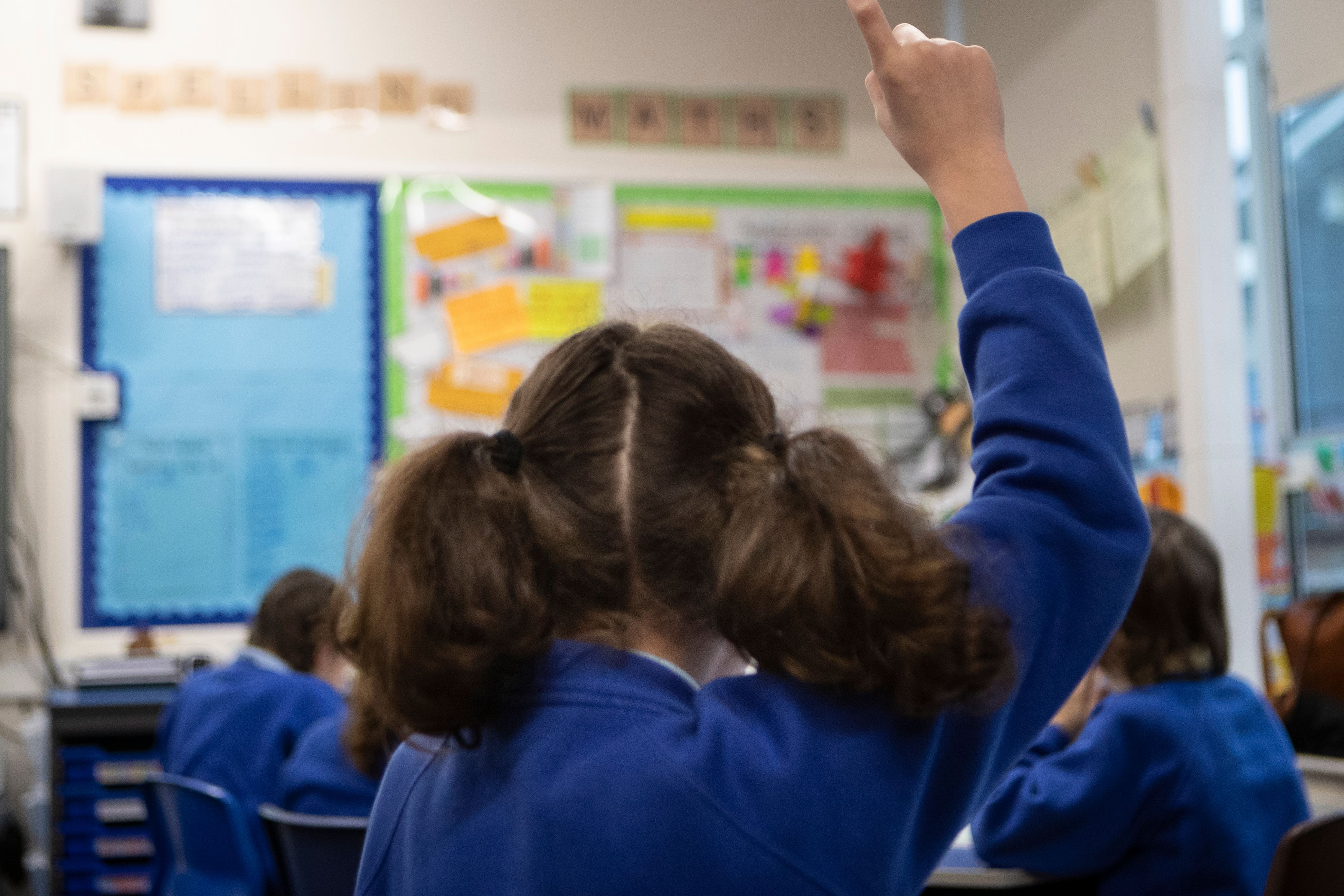Labour’s private school tax plans may damage equality progress – education chief
It could be more difficult for families to access single-sex education if private schools are forced to close, it has been suggested.

Your support helps us to tell the story
From reproductive rights to climate change to Big Tech, The Independent is on the ground when the story is developing. Whether it's investigating the financials of Elon Musk's pro-Trump PAC or producing our latest documentary, 'The A Word', which shines a light on the American women fighting for reproductive rights, we know how important it is to parse out the facts from the messaging.
At such a critical moment in US history, we need reporters on the ground. Your donation allows us to keep sending journalists to speak to both sides of the story.
The Independent is trusted by Americans across the entire political spectrum. And unlike many other quality news outlets, we choose not to lock Americans out of our reporting and analysis with paywalls. We believe quality journalism should be available to everyone, paid for by those who can afford it.
Your support makes all the difference.Labour’s plan to charge VAT on private school fees could hit girls “hardest”, an education chief has suggested.
Donna Stevens, chief executive of the Girls’ Schools Association (GSA), said Labour’s policy could be “damaging” to progress made in gender equality.
Addressing headteachers of girls’ schools at the GSA annual conference in the Cotswolds on Monday, Ms Stevens highlighted “emerging political threats”.
My concern is that this policy would hit a disproportionate number of girls' schools and that's going to be damaging for the progress we've made in the last 150 years in terms of equality
Labour remains committed to its policy for England of charging 20% VAT on fees and ending the business rates relief from which private schools benefit.
The GSA chief told the PA news agency: “My concern is that this policy would hit a disproportionate number of girls’ schools and that’s going to be damaging for the progress we’ve made in the last 150 years in terms of equality.”
She warned that there could be “more gaps in terms of accessing a girls’ school” if private schools are forced to close as a result of Labour’s policy.
Girls are disproportionately taught in the independent sector which would mean female pupils are more likely to be affected by Labour’s plans to scrap tax exemptions for private schools, Ms Stevens has suggested.
We're just concerned that a lot of parents won't have the access and, therefore, won't be able to afford a girls’ school education
She said: “We want more choice for girls, not less.”
Rachel Reeves told the Labour Party conference that she would use her first budget as chancellor of a Labour government to end “the tax loophole which exempts private schools from VAT and business rates”.
When asked about Labour’s plans, Marina Gardiner Legge, headteacher of Oxford High School and president of the GSA, told PA: “Girls’ schools have a lot of parents where both parents are trying to fight to pay the fees.
“We’ve had the cost-of-living increase and I think we’re just concerned that a lot of parents won’t have the access and, therefore, won’t be able to afford a girls’ school education.
This policy would actually affect the most those smaller schools with lower fees which are more accessible to normal working parents and families
“All the research demonstrates that’s the best thing for their daughters.”
Last month, Labour’s shadow education secretary Bridget Phillipson hit back at critics of the party’s plans to strip private schools of tax exemptions.
The shadow education secretary responded to reports in the Guardian from June, which suggested that officials at the Independent Schools Council (ISC) described Ms Phillipson as “very chippy” in private messages.
She said that “high and rising standards cannot just be for families who can afford them” as she revealed Labour’s plans to reform early years education.
If those schools close, or if a proportion of their pupils move to the state system, that becomes a cost to the state sector
Julie Robinson, chief executive of the ISC, warned: “This policy would actually affect the most those smaller schools with lower fees which are more accessible to normal working parents and families.
“Typically these are families who for some reason can’t get the kind of education they’re looking for for their child locally so they’re willing to pay for it.”
Speaking to PA at the GSA annual conference, Ms Robinson said: “If those schools close, or if a proportion of their pupils move to the state system, that becomes a cost to the state sector.”
She added that disadvantaged children could be “further back” in the queue for top state schools if more middle-class parents – who were previously paying for a private school education – sought places in the state sector.
“Not only does it have a negative impact on the independent sector, I think more importantly, it has a negative impact on the state sector,” the ISC chief executive said.